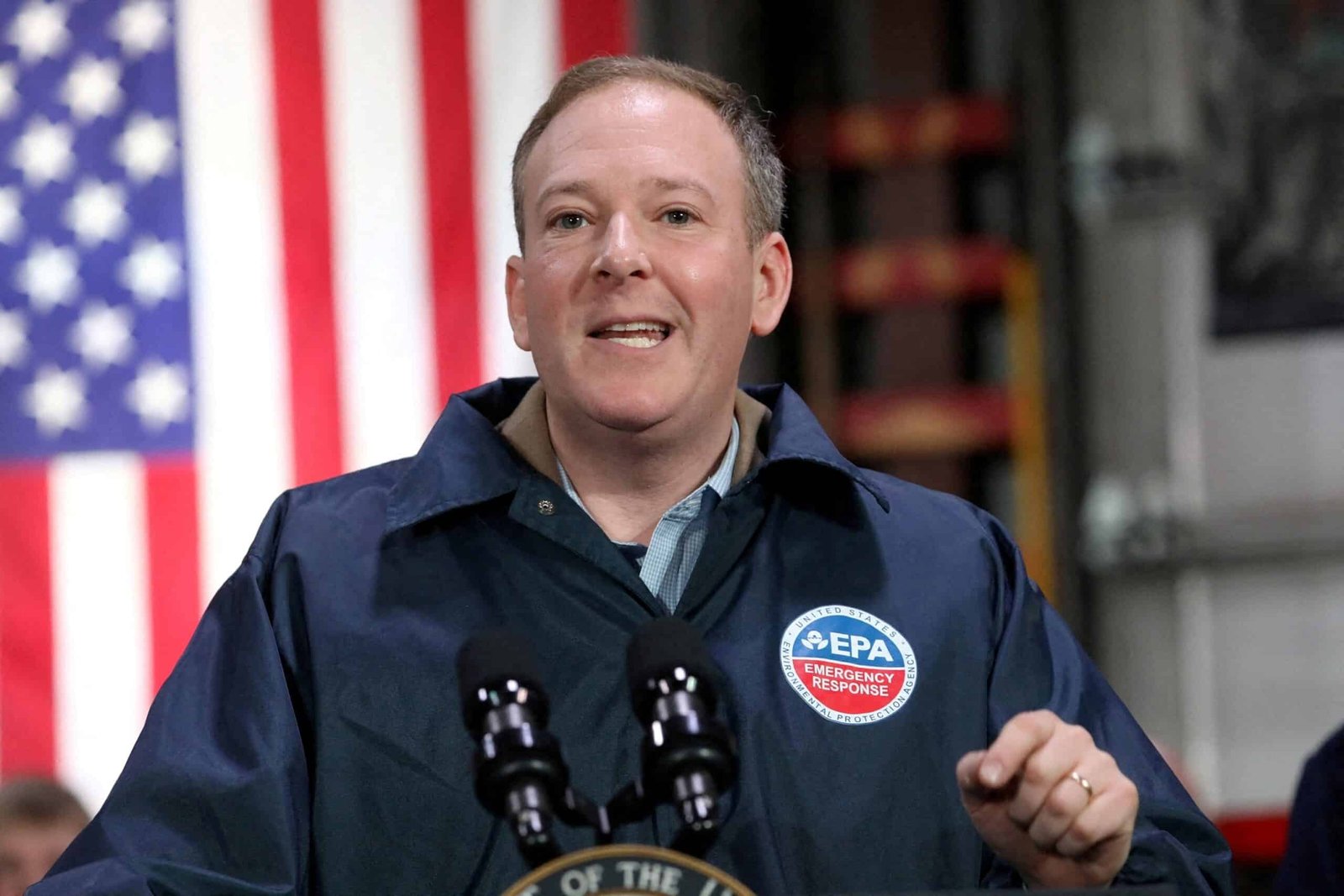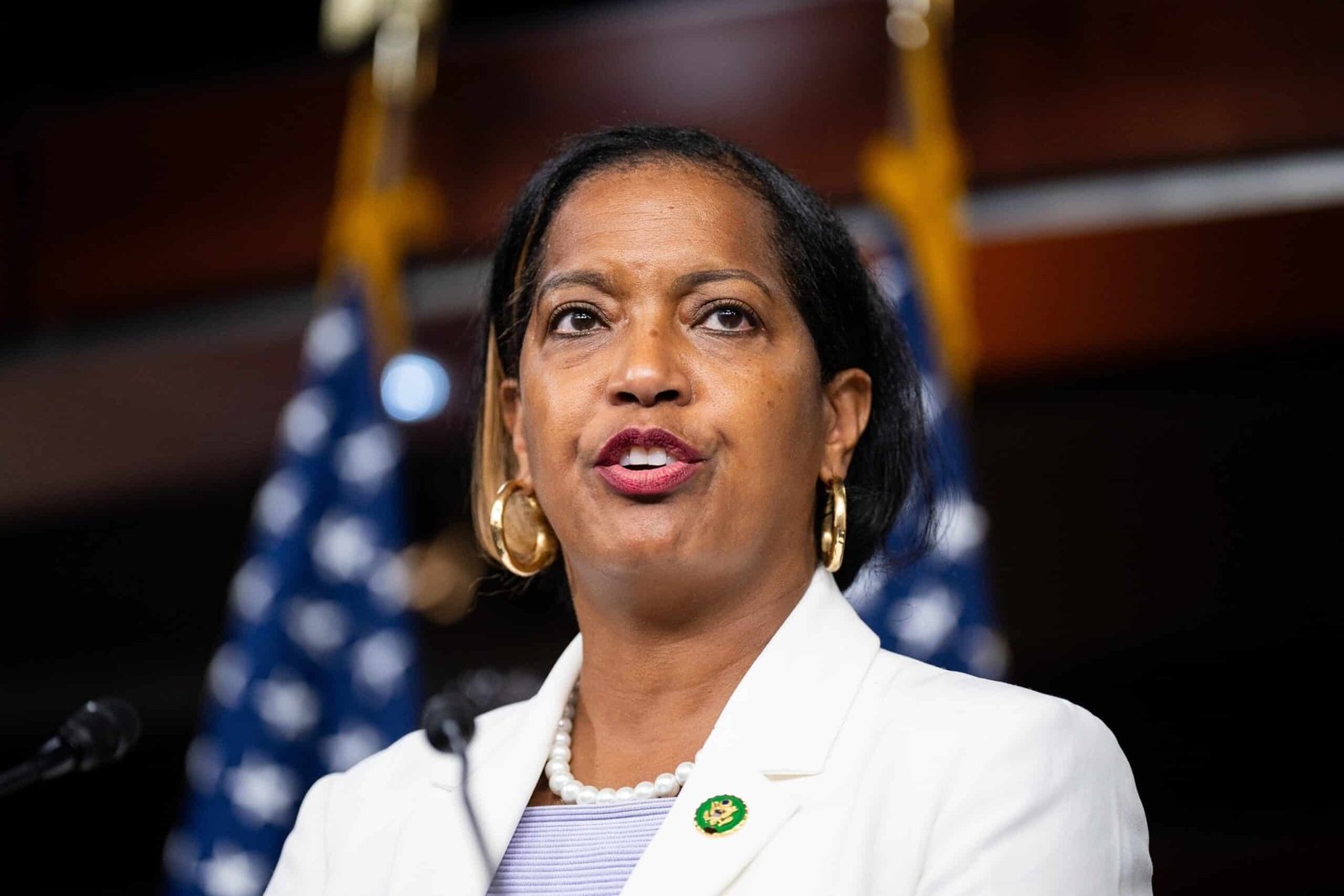CFPB officials testify about chaotic doge efforts to dismantle the agency

Before a judge stopped the takeover in February, President Donald Trump’s administration planned to fire the majority of employees in the consumer financial protection bureau and then fulfill the legal obligations of the agency with the framework crew, the top CFPB officials who testified on Monday.
During a long court hearing on Monday, CFPB Chief Operating Officer Adam Martinez gave an oath full account on chaos and confusion that had consumed federal agents that were established to protect the public from unfair company practices since the government efficiency department and administrative officials Trump moved to dismantle it.
His testimony gave a window about what happened internally as the spearhead of Trump’s mandate to cut the federal government.

Supporters of the Consumer Financial Protection Bureau after Acting Director of CFPB Russell Vought told all agency staff to stay away from the office and not do work, outside CFPB in Washington, DC, February 10, 2025.
Craig Hudson/Reuters, File
“There is no temporary detention order, the majority of CFPB employees will be stopped?” A lawyer representing the plaintiff asked Martinez.
“The majority, yes,” Martinez said, adding the remaining employees to be fired in the later takeover phase.
Throughout his six-hour testimony, Martinez described the back and forth played in recent weeks among the acting of CFPB Director Russ Vough, DOGE, Personnel Management Office and Management and Budget Office. Officials who switched between stopped and some returned the agency’s work when they were rushed and then rushed to restore pieces to comply with the law -in some cases of losing data and key services along the road.
“I have difficulty processing what happened,” Martinez said, describing the early days of the DOGE takeover against CFPB.
“So, is it fair to say that there is thought that discusses it, but only afterwards? This is like, shoot first and ask the question later? “Judge Amy Merman Jackson asked, after Martinez described how the agency was forced to cancel many critical contracts but canceled some of the stopping immediately after that. Martinez agreed.
The trial also explained the unique relationship between Doge representatives and career civil servants, and Martinez often called Doge representatives as the new CFPB leader installed.
“I do not understand, why you use it with leadership to refer to Doge unless you have been told that Doge now is your leadership,” Hakim Jackson asked.
“They were appointed as senior advisers, Mu’am,” Martinez said.
“CFPB senior leaders,” Jackson judge asked.
“Right,” Martinez said.
Martinez remembers everything from the first arrival of Doge representatives at the CFPB office in the first week of February – and the director’s email ordered CFPB employees to stop working – until the direct chaos that occurred, as well as efforts by other career officials at CFPB to find out what had ended and how to restore critical Functi from the agent.
“There are some high priority problems that will destroy if it stops,” Martinez said at one point.
“I am very concerned about the center of consumer response that falls,” Martinez said, explaining the potential reaction that could occur if the system stopped. He said he finally coordinated the discussion between the head of the unit and the Doge representative to “help them understand why the program was so important.”
On March 2, after a lot of confusion and frustration about what type of work CFPB was allowed to do, OMB General Advisor Mark Paoletta, who had represented Vought, finally sent a letter that directed CFPB employees to carry out the tasks needed legally.
But even after several units were told to return to work, they continued to experience challenges – including the loss of personnel and access to files from those who had gone, according to the account exhibited during the trial.
Jackson acknowledged the extraordinary situation faced by CFPB workers, and he raised a series of questions to witnesses.
“Are you going to say that sending orders that say ‘no job’ is typical?” Jackson judge asked.
“No,” Martinez answered.
“Are you going to say that canceling all contracts before analysis is this duplicate, useful, not useful, is typical?” The judge also asked.
“No,” Martinez answered again.
“Are you going to say that firing all experimental employees and employees two years from the start is typical?” The judge asked.
“No,” Martinez answered.
“Are you going to say that trying to apply a brief without notice before the new director is even enforced, is typical?” The judge continued.
“No,” Martinez answered again.
“And are you going to say putting the rest of the employees on administrative leave with orders not to do special jobs?” The judge asked.
“No,” Martinez answered.
Jackson is considering issuing a preliminary order to effectively stop the details of CFPB, which he stopped for a while last week. During the trial on Monday, Martinez was baked about the email he had produced where he discussed carrying out mass termination despite a court order.
“You say that, in some ways, the delay is a blessing, because it gives you more time to find ways to achieve this broad scale stop, right?” A lawyer asks.
“Yes,” Martinez said.
“So, you convey things like, really, there will be no CFPB now, right?” The lawyer continued.
“When you tear a number of people and functions, yes,” Martinez said.






